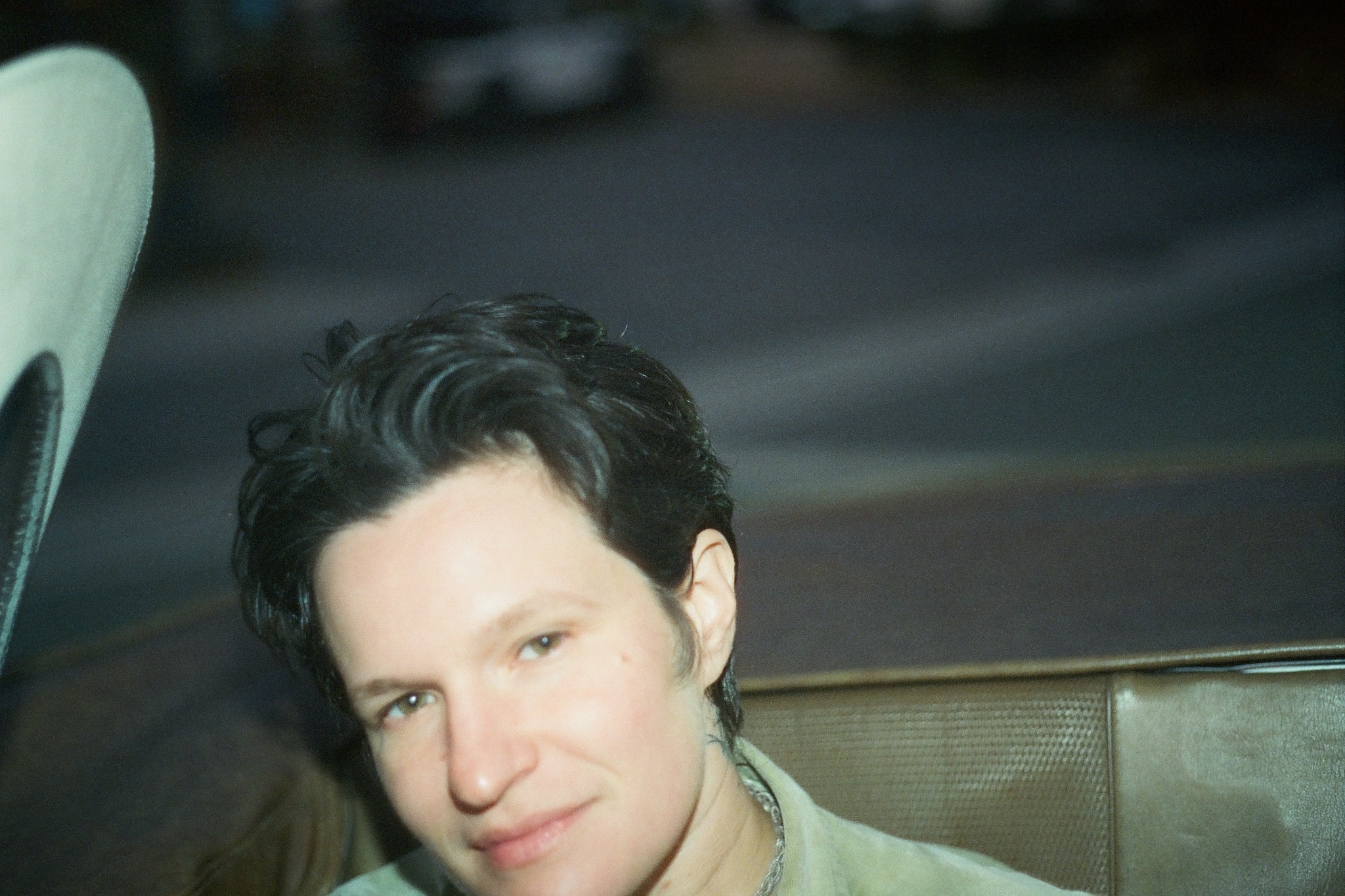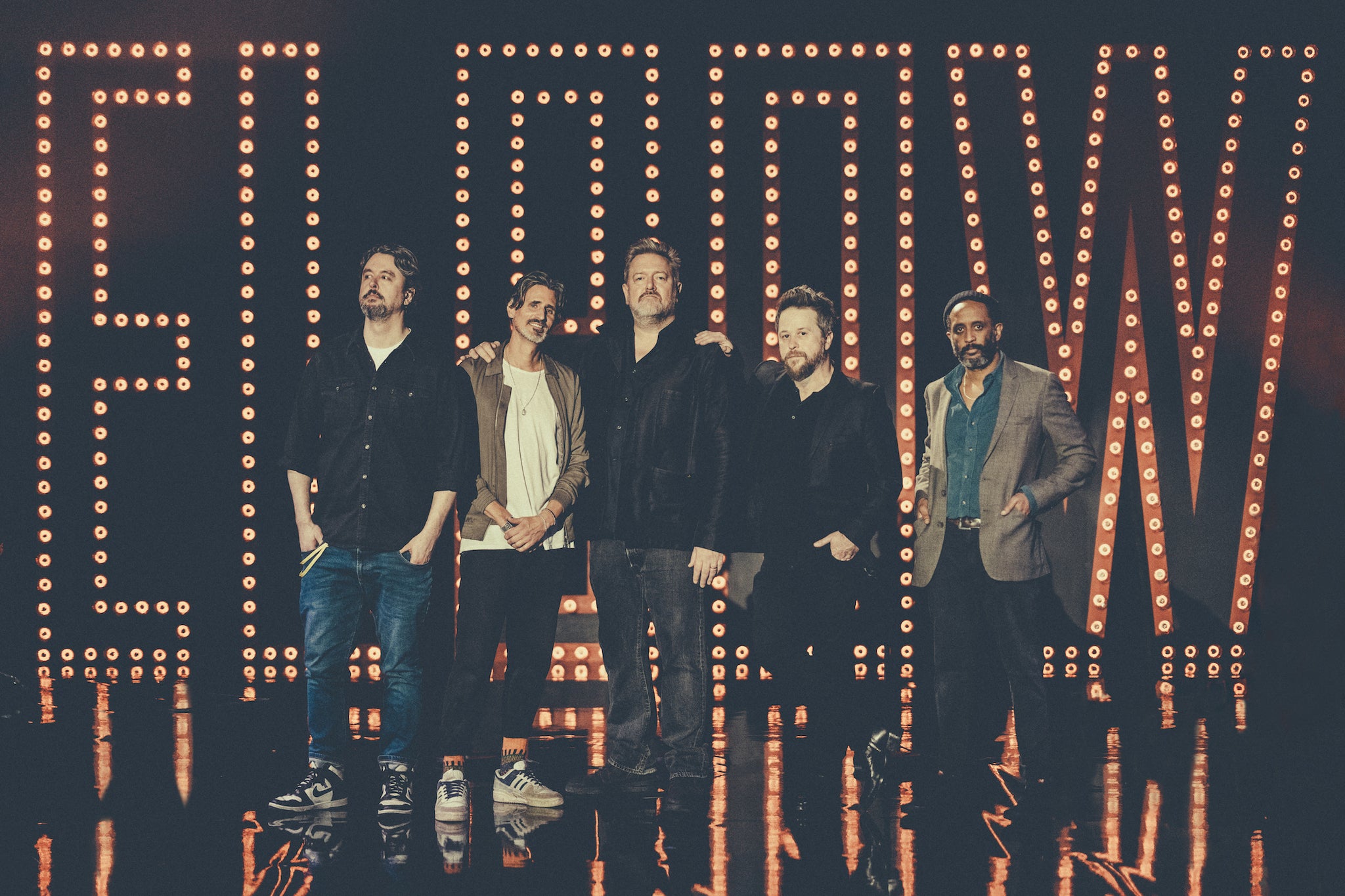Album reviews: Shakira, Waxahatchee, Adrianne Lenker, and Elbow
Shakira swaps revenge for something more nuanced, while Waxahatchee and Adrianne Lenker double down on their previous albums’ brilliance, and Elbow return to the spare melodies and dark moods of their early work

Your support helps us to tell the story
From reproductive rights to climate change to Big Tech, The Independent is on the ground when the story is developing. Whether it's investigating the financials of Elon Musk's pro-Trump PAC or producing our latest documentary, 'The A Word', which shines a light on the American women fighting for reproductive rights, we know how important it is to parse out the facts from the messaging.
At such a critical moment in US history, we need reporters on the ground. Your donation allows us to keep sending journalists to speak to both sides of the story.
The Independent is trusted by Americans across the entire political spectrum. And unlike many other quality news outlets, we choose not to lock Americans out of our reporting and analysis with paywalls. We believe quality journalism should be available to everyone, paid for by those who can afford it.
Your support makes all the difference.Shakira – Las Mujeres Ya No Lloran
★★★☆☆
When Shakira released her Bzrp Music Session last year, that old adage about “a woman scorned” went rippling through the entertainment world. It was a blatant diss track, one that unleashed the Colombian pop star’s fury against her ex, Spanish footballer Gerard Piqué, and the woman he was alleged to have cheated on her with. Produced by Argentinian DJ Bizarrap, the synth-laden jam made plenty of thinly veiled references to Piqué and Clara Chia Marti. Perhaps most devastating were the (translated) lyrics: “I’m worth two 22-year-olds/ You traded in a Ferrari for a Twingo/ You traded in a Rolex for a Casio.” Her ex’s new girlfriend, you see, was barely half her age.
One might assume, then, that Shakira’s new album, Las Mujeres Ya No Lloran, is a revenge record. “No, but it helped me exorcise a lot of the demons that were tormenting me. And it felt good,” she said in a recent interview. Her first record since 2017’s El Dorado – itself an exorcism of sorts after she found herself struggling with writer’s block – melds pulsating dance anthems with reggaeton, pop… and even a splash of grunge.
The result is a mixed bag. “La Fuerte” (“The Strong”) would be a forgettable club banger were it not for Shakira’s lyrics, still raw with grief. “Tiempo Sin Verte” and “Como Donde Y Cuando” are more interesting thanks to their minor chord acoustic strums and angsty one-two punch of electric guitar. Across the record, Shakira flexes those formidable vocal cords (she suffered a vocal haemorrhage in 2017 but refused surgery and has since recovered), belting it out Avril Lavigne-style. Elsewhere, she sounds fragile in her lilting delivery on “Nassau”; her fears of being hurt again set to sunny afrobeats.
The album’s shining point is “Ultima”, a stripped-back piano ballad in which revenge is the last thing on her mind. Instead, Shakira lets the vulnerability radiate through: “Surely with time you’ll regret it/ And someday you’ll want to come back to my door/ But now I have decided to be alone.” In place of rage, there’s pain and the glimmer of acceptance. From tears, diamonds. ROC

Waxahatchee – Tigers Blood
★★★★☆
It was tough to predict what would come next for Waxahatchee. Whether Katie Crutchfield’s sixth studio album would follow in the footsteps of Saint Cloud, her 2020 Americana-steeped high-water mark, or return, cowboy boots in hand, to the punkish indie energy of her earlier work was unclear.
And so arrives Tigers Blood. Sonically, its warm and deft touch cleaves closer to Saint Cloud, enlisting producer Brad Cook once again, this time alongside MJ Lenderman, a North Carolina native and rising indie rock star who plays electric guitar on all 11 songs and sings harmonies on four. The harmonicas whistle and the guitars slide over Crutchfield’s clear-eyed storytelling.
As ever, she is at home with her demons. The album’s sunkissed, freckle-shouldered sound belies anger and fear at times. Even the happiest songs wear their joy tentatively, a spring coat draped over the shoulders in case of a sudden downpour. Arriving on the lonesome twang of Phil Cook’s plucked banjo, “Right Back to It” is a love song about how love is hard, but lovely all the same. “I let my mind run wild/ Don’t know why I do it/ But you just settle in/ Like a song with no end,” she sings alongside Lenderman in a duet that calls to mind country Gram Parsons and Emmylou.
The songs on Tigers Blood feel natural and unstudied. There is no aim in mind. Lyrically, Crutchfield is content to wade through the scenes of life, both hers and ours: late-night fights with partners, friendships beyond repair, relationships out of sync and out of balance, addictions out of sight but not out of mind. They’re dusky amblings with neither an origin nor destination. “Crowbar” is driven by a jangling guitar and an undercurrent of quiet fury that goes nowhere. If Tigers Blood is any indication, nowhere is the best place to be. AN

Adrianne Lenker – Bright Future
★★★★☆
The sixth solo album from Adrianne Lenker, the prolific and enviably consistent frontperson of indie folk-rock band Big Thief, is another accomplished record.
Enjoy unlimited access to 100 million ad-free songs and podcasts with Amazon Music
Sign up now for a 4 month free trial (3 months for non-Prime members)
Enjoy unlimited access to 100 million ad-free songs and podcasts with Amazon Music
Sign up now for a 4 month free trial (3 months for non-Prime members)
Recorded in a remote forest studio using entirely analogue equipment, Bright Future has a pared-back, almost lo-fi sound to it. On tracks like the wonderful, frantic “Vampire Empire” – an acoustic version of a recent Big Thief single – the audio cracks and frays; at other points, Bright Future allows the music to come through sweet and clean.
Lenker sings with strained grace about childhood (on the saturnine opener “Real House”) and heartbreak. Across 12 tracks, imagery of the natural world abounds. In the coruscating love song “Free Treasure”, she describes a river as having “water like a washing machine”. “Donut Seam” is both love song and environmental lament: “This whole world is dying/ don’t it seem like a good time for swimming/ before all the water disappears.”
There are more hooks here than on Lenker’s previous albums, 2020’s great but ethereal Songs, and its companion album, the lyricless Instrumentals. Tracks like the gentle, mellifluous “Cell Phone Says” showcase Lenker’s skill with a soulful folk guitar riff, while the lively and finger-picked “Fool” is a standout.
So relentless is the nature of Lenker’s output that the two-year gap since her last release (Big Thief’s shape-shifting double album Dragon New Warm Mountain I Believe in You) feels like a strangely long absence. Bright Future, at least, is well worth the wait. LC

Elbow – Audio Vertigo
★★★☆☆
Sixteen years on from The Seldom Seen Kid, Elbow have long since given up trying to repeat the moment in 2008 when they threw the curtain wide on ubiquitous sports-coverage-anthem success. Recent albums have been downbeat pandemic affairs (2021’s Flying Dream 1) or bleak reflections on societal division and the deaths of close friends and family (2019’s Giants of All Sizes). This 10th album, too, shies away from stirring euphoric lift-offs in the vein of “One Day Like This”, preferring instead to evoke the skittering polyrhythms, dank moods and spare melodies of early records such as 2001’s Asleep in the Back, all the while edging into fresh territory – namely gothic big-band synthpop (“Balu”), space samba (“From the River”) and even, on “Lovers Leap”, a kind of Day of the Dead Radiohead.
Singer Guy Garvey is in reflective mode, but keeps the listener at an obtuse distance. Inhabiting a vocal midpoint between jazzy Alex Turner and jazzy Elvis Costello on “Things I’ve Been Telling Myself for Years”, Garvey bafflingly chastises himself for being “the dashboard hooligan” and a “Blackpool rock imposter”. His is a confessional that’s tougher to relate to than Graham Norton’s average red chair story. “Very Heaven” is a similarly imagistic neo-funk tour of Garvey’s late-teenage outsider angst; “Poker Face” a junk blues farewell to such growing pains. More direct, “Knife Fight” concerns an actual blade battle that Garvey witnessed in the streets of Istanbul, but beyond “Lovers Leap” and the buzz rock bits of “Balu”, “The Picture”, and “Good Blood Mexico City”, little else on Audio Vertigo slashes out of the speakers at you. It’s a record to stew with rather than make you instinctively bend for the finish line. MB
Join our commenting forum
Join thought-provoking conversations, follow other Independent readers and see their replies
Comments